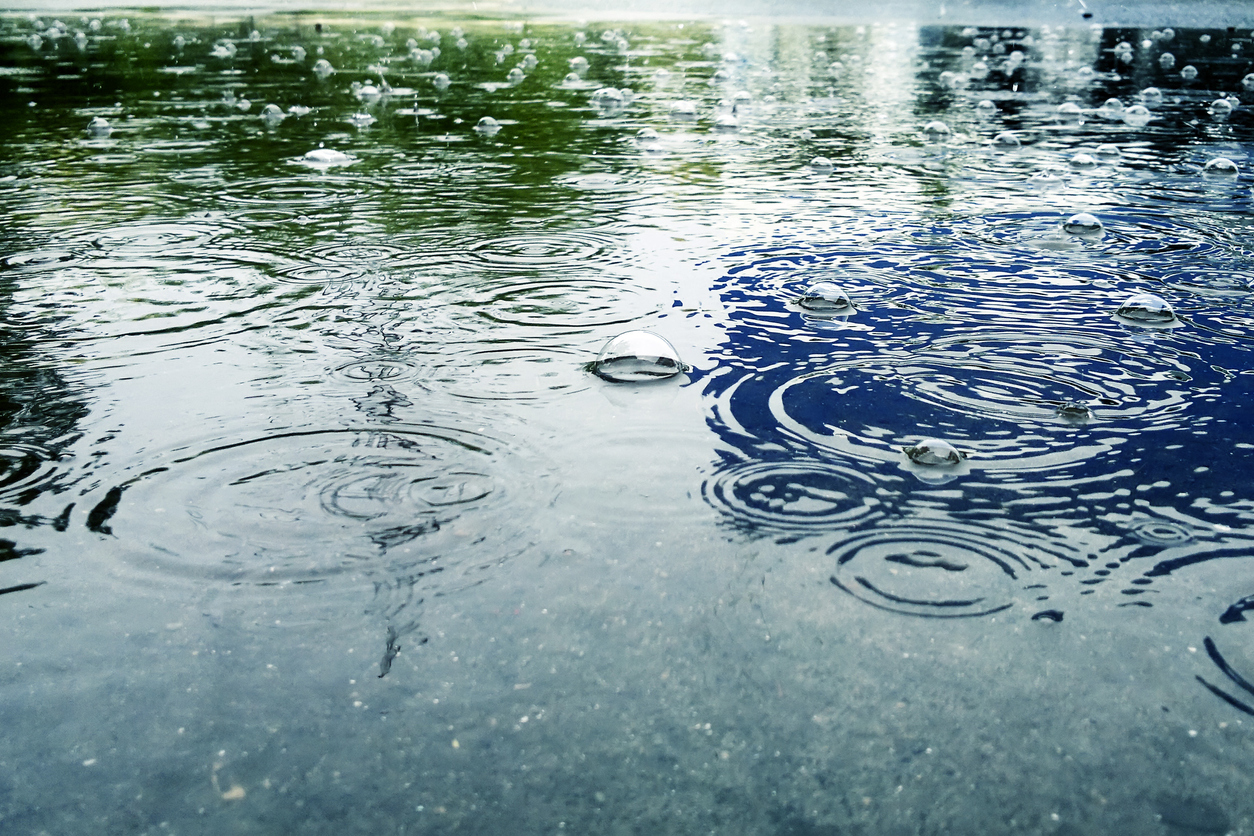
Raindrops falling into a lake
The Water Cycle
Grades 3-5
This lesson focuses on two main ideas.
- The process of how water cycles throughout our planet
- Being able to label a water cycle model and use related vocabulary terms
Procedure
INTRODUCTION (15 minutes)
Read introduction to students and review new vocabulary. Students will watch the “Water Cycle: Ways of the Watershed” video. After the video, have a discussion around the essential questions and thinking questions aligned to the topic and video. Discuss the career connections related to the water cycle with students.
EXTENSION (15-30 minutes)
Complete extension activities with students, as you see fit.
ASSESSMENT (15 minutes)
Have students apply their newfound knowledge by completing a Summative CER on the lesson using evidence from the video and activities as support.
REFLECTION (10 minutes)
Have students complete a reflection.
Standards
5-ESS2-1. Earth's Systems
Develop a model using an example to describe ways the geosphere, biosphere, hydrosphere, and/or
atmosphere interact.
- Science and Engineering Practices
Developing and Using Models
Modeling in 3–5 builds on K–2 experiences and progresses to building and revising simple models and using models to represent events and design solutions.- Develop a model using an example to describe a scientific principle.
- Disciplinary Core Ideas
ESS2.A: Earth Materials and Systems
- Earth’s major systems are the geosphere (solid and molten rock, soil, and sediments), the hydrosphere (water and ice), the atmosphere (air), and the biosphere (living things, including humans). These systems interact in multiple ways to affect Earth’s surface materials and processes. The ocean supports a variety of ecosystems and organisms, shapes landforms, and influences climate. Winds and clouds in the atmosphere interact with the landforms to determine patterns of weather.
- Crosscutting Concepts
Systems and System Models
- A system can be described in terms of its components and their interactions.
Standard 2
Human Dependence on Earth Systems and Natural Resources
Environmentally literate students construct and apply understanding of how Earth’s systems and natural resources support human existence.
Summative CER
Option 1:
A student claims that evaporation and transpiration mean the same exact thing. Develop a response in which you support or refute the student’s claim. Use evidence and reasoning from the videos and activities to support your response.
Option 2:
Develop an explanation on how water moves around our planet. Use evidence and reasoning from the videos and activities to support your explanation.
Reflection Questions
- What are the ways in which water moves throughout our planet?
- How does the water cycle relate to water in our Maryland aquatic environments like the Chesapeake Bay?
Summative CER Rubric
| No Response Score Point 0 |
Not There Yet Score Point 0.5 |
Beginning To Score Point 0.75 |
Yes Score Point 1.0 |
|---|---|---|---|
| The claim is missing. | The claim is incorrect or irrelevant. | The claim partially takes a position on the topic or issue addressed within the prompt. | The claim takes an appropriate position on the topic or issue addressed within the prompt. |
| There is no type of evidence in the response. | The evidence is irrelevant or does not support the claim. | The evidence partially supports the claim and demonstrates some understanding of the topic or text, using appropriate sources. | The evidence supports the claim and demonstrates a strong understanding of the topic or text, using appropriate sources. |
| There is no use of words, phrases, and clauses to create cohesion and to clarify the relationship between the claim and evidence. | Use of words, phrases and clauses fail to show or explain any relationship between the claim and evidence. | Scientific words, phrases, and clauses used lack cohesion but partially clarify the relationship between the claim and evidence. | Appropriate scientific words, phrases, and clauses are used to create cohesion and to clarify the relationship between the claim and evidence. |


